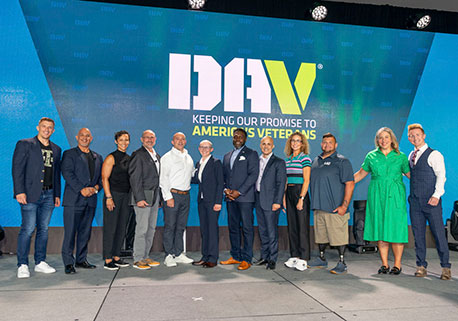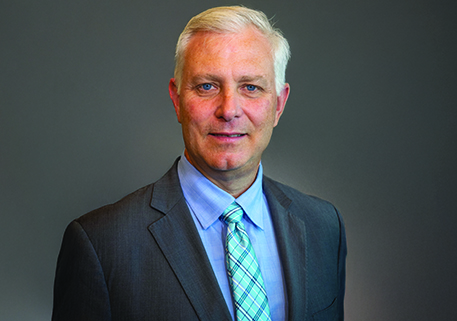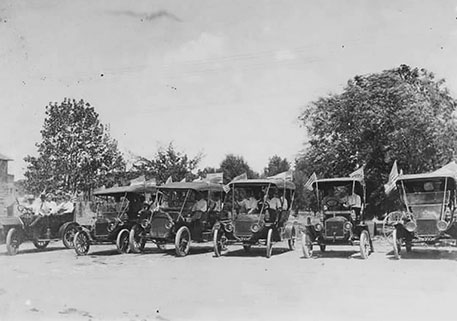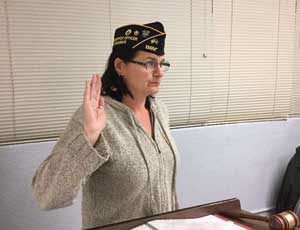
Army veteran helps fellow veterans get benefits; finally receives hers
Erin Glaser grew up proud of her father, who had served as a sergeant in the Army during the Vietnam War. That pride helped her decide, at 19 years old, to join the Army herself and become a military police officer.
In 1994, Glaser started her training to become a soldier, with dreams of making it a career. But those dreams were cut short when Glaser was sexually assaulted by a superior while she was still in military police training.
“After the assault happened, I didn’t feel like I could go anywhere without the men harassing me or following me,” said Glaser. “I started to feel like it was never going to stop. And if it was never going to stop, there was no point for me to stay any longer.”
Glaser said the trauma caused her to lose hope completely, causing her to become suicidal. A fellow soldier recognized that she needed help and convinced her to see a base psychiatrist. She was found unfit for duty and discharged from the Army less than a year after she’d joined.
“I cried when they kicked me out,” she said. “I thought I was a failure. I couldn’t work for anybody. I couldn’t trust men or anyone in an authority position. I lived my life after that never trusting anybody. I felt like I got cheated out of the service I was meant to do.”
The assault—and the lack of support she received in its aftermath—shaped the next phases of her life, as is true for many survivors of sexual assault. For 20 years, Glaser believed she wasn’t really a veteran and couldn’t receive Department of Veterans Affairs benefit or services.
In 2014, a veteran friend convinced her to again seek help from the VA, telling her there was a name for what she was living with: military sexual trauma, or MST.
“I went home and starting researching MST. I’d never heard of it before,” Glaser said. “Sure enough, the description fit with what I had been dealing with all those years.”
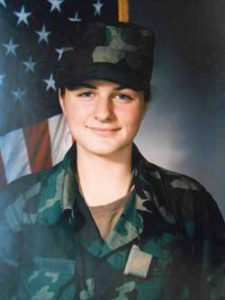
Glaser went to the DAV office in Reno, Nev., to seek guidance on how she could go about getting the help she so desperately needed.
DAV benefits advocates were able to get her connected with mental health services right away and began processing her claim. Proving her service connection was hard, she said, because she only had her training records and a drawing she’d made while suicidal. The support she was given inspired her to volunteer as a chapter service officer herself.
“Because of the help I received from DAV, I decided to become a volunteer service officer,” Glaser said. “The veterans need us.”
“She reaches the veterans who live a long way from our offices in Reno,” said National Service Officer Maria Ruvalcaba. “She voluntarily sees as many veterans as she possibly can, reaching so many more than we can alone.”
But Glaser’s volunteerism proved problematic. While her disability claim was ultimately approved, she was denied Individual Unemployability because a mental health professional gave an opinion that she could work.
“Erin had been serving veterans as a chapter service officer with DAV Carson City Chapter 7,” said Mark Donberger, national service office supervisor in Reno. “She would take claims from veterans who could not make it into the regional office. Because of this volunteerism, she was considered suitable for gainful employment.”
Glaser appealed the decision but was repeatedly denied. She didn’t qualify for Social Security and couldn’t find a paid position. The single mother of four was living below the poverty level and made many sacrifices to support herself and her family.
Donberger stepped in to assist and requested a VA hearing to present the whole story. In 2018, Glaser finally had a video hearing with a decision review officer from the St. Paul Regional Benefits Office in Minnesota.
Glaser gave her statement about her quality of life and inability to find employment because of her fear of any person in authority. The VA considered the facts of the case and granted entitlement to Individual Unemployability benefits. Glaser received a retroactive payment going back to June 2015.
Since being granted Individual Unemployability, she can support her family and pay her bills, and her quality of life has improved.
“I’ve been able to relax about things; my children have benefits they didn’t have before,” said Glaser. “I’m able to actually have time to deal with my other health issues now, and take time I need to rest and heal. I’m able to face my demons without worrying about surviving anymore.”

